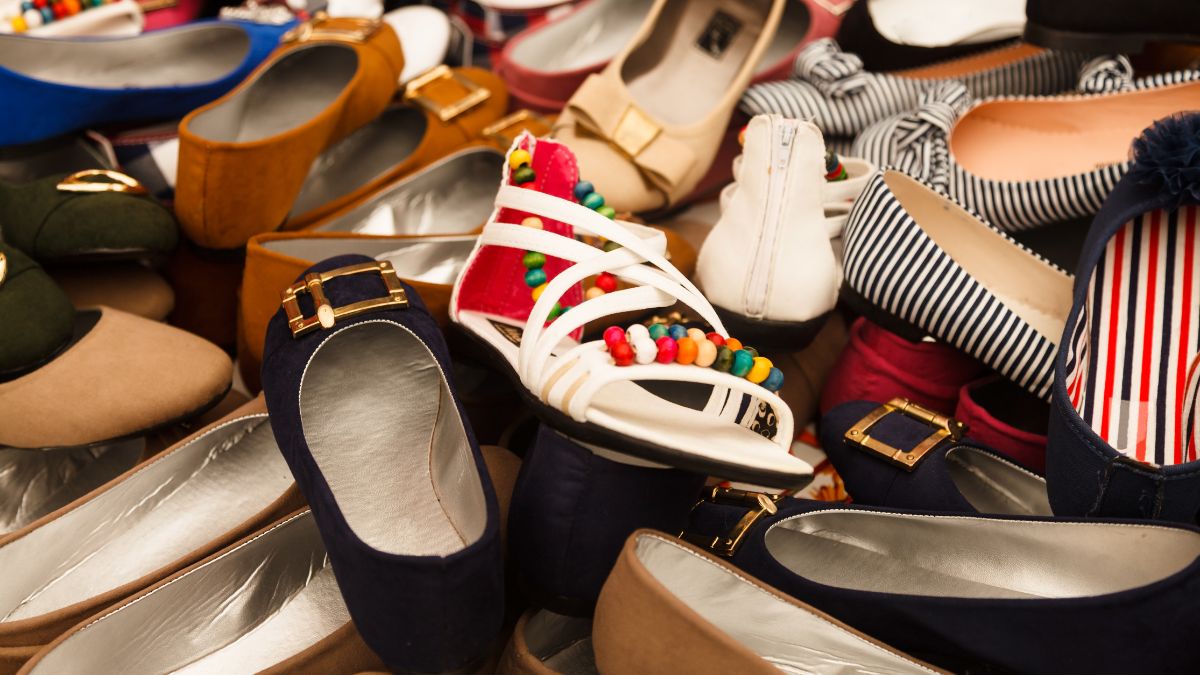
Mexico has officially suspended the temporary importation of finished footwear under the IMMEX program, a decision announced by President Claudia Sheinbaum and Secretary of Economy Marcelo Ebrard. While the measure applies to footwear imports from all countries, government officials and industry leaders acknowledge that the decree is primarily aimed at Chinese shoes that were entering the Mexican market without paying tariffs.
ALSO READ. Taco Bell is bringing back dishes from the 2000s! Check them out!
Why did Mexico suspend temporary footwear imports?
The decree, published in the Diario Oficial de la Federación (DOF) on August 28, modifies the IMMEX framework to explicitly prohibit finished footwear from entering the country under the temporary import regime. According to official data, the abuse of this mechanism caused severe harm to Mexico’s footwear industry.
Between 2019 and 2024, the sector’s GDP fell by 3.1%, production contracted by 0.1%, and employment dropped by 2.8%. The situation worsened in 2024, when imports of finished footwear under IMMEX surged 159% in volume and 60.3% in value compared to 2023, with Chinese products representing the bulk of that growth.
What is IMMEX and why was it not designed for finished goods?
The IMMEX program was originally created to support maquiladora companies in Mexico—factories that import raw materials or components, assemble or process them, and then export the finished goods, mainly under the framework of the United States-Mexico-Canada Agreement (USMCA/T-MEC).
The program allows temporary imports without paying taxes, but only on the condition that the goods are exported after processing. However, finished footwear—especially from China—was entering the country under IMMEX and being sold domestically without paying duties. This practice not only violated the spirit of the program but also created unfair competition for Mexican producers.
Is this measure targeting China specifically?
While the decree’s wording applies broadly to imports from any country, officials acknowledged that the central issue was the flood of Chinese footwear entering Mexico through IMMEX loopholes. These imports, often underpriced, were displacing domestic production and undermining thousands of jobs in Guanajuato, Jalisco, and the State of Mexico, where most of the national footwear industry is based.
Trade experts note that the ratio of exports to imports under IMMEX fell dramatically in recent years, dropping from 6.59 pairs exported per pair imported in 2021 to just 0.88 in 2024. This decline illustrates how the mechanism was being abused to keep foreign footwear in Mexico rather than exporting it.
What role do tariffs play now?
With the suspension in place, any finished footwear entering Mexico must pay the corresponding tariffs, averaging 25%. This levels the playing field between foreign suppliers and domestic manufacturers, who were previously at a tax disadvantage.
The Mexican government argues that this adjustment is essential to protect jobs and revive production. According to INEGI, in 2024 alone the footwear sector lost nearly 11,000 formal jobs, making the decree a crucial step to prevent further erosion of employment.
How will this impact consumers in Mexico?
For Mexican consumers, the immediate consequence may be a moderate price adjustment on imported shoes, especially low-cost models originating in China. However, the government clarified that definitive imports of footwear are not banned—retailers and e-commerce platforms such as Shein can continue to operate as long as they pay the required tariffs.
In the long term, officials argue that strengthening the domestic industry will ensure greater stability, better wages, and more investment in the national economy.
What comes next for Mexico’s trade policy?
The suspension of temporary footwear imports signals a broader shift in Mexico’s trade strategy. President Sheinbaum has instructed her cabinet to closely monitor strategic sectors where imports—often from Asia—are harming domestic production.
For Secretary Ebrard, the footwear decision sets a precedent: if IMMEX can be manipulated to bypass tariffs, it will be corrected. The government’s message is clear: Mexico will not allow loopholes designed for maquiladoras under the T-MEC framework to be exploited for finished products that harm national industries.










